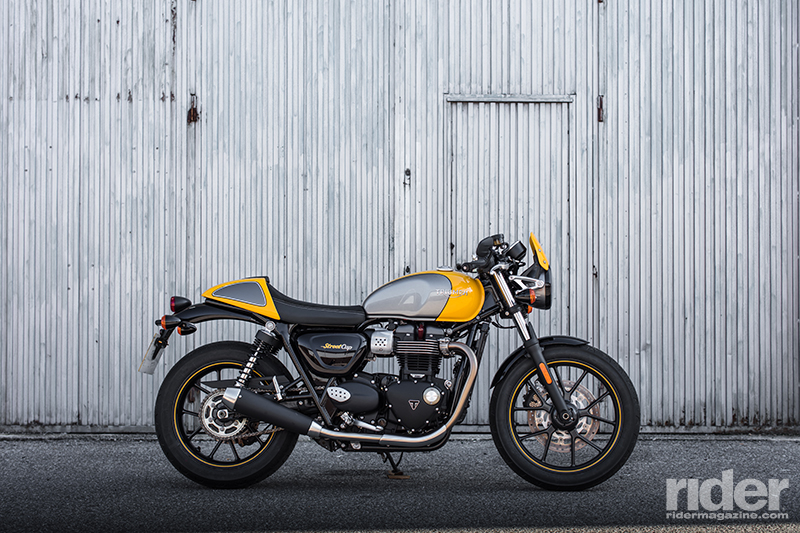
You may have heard, but retro styled, classic bikes are “in” right now, and few, if any, manufacturers do retro better than Triumph. The boys in Hinckley are clearly doing something right; Triumph says sales of its “modern classic” Bonneville line are up 68 percent with the crop of new and revamped models last year. And we were impressed enough to make the Bonnie T120 our 2016 Motorcycle of the Year.
Read our First Ride Review of the Bonneville Bobber.
That uptick in sales was led by the new Street Twin, a smaller, lighter and less expensive version of the iconic Bonneville, and Triumph says that its data indicate that a significant portion of those sales are to new riders. Apparently there’s a market out there for simple, fairly inexpensive, fun, classically good-looking motorcycles.
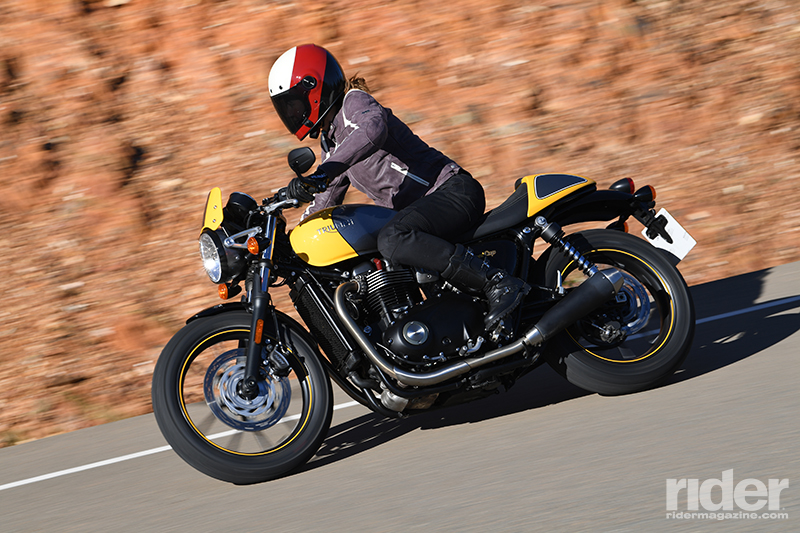
The formula is working, so for 2017, Triumph has announced two new Street Twin-based models, the Steve McQueen-cool Street Scrambler (read our First Ride Review) and the sporty Street Cup. Designed to evoke the customized street racing machines of the 1960’s London motorcycle club scene, the new Street Cup is a stripped-down, souped-up café racer, but at not-quite-Thruxton levels of performance, size or price. Think of it as a sporty Street Twin, not a smaller Thruxton.
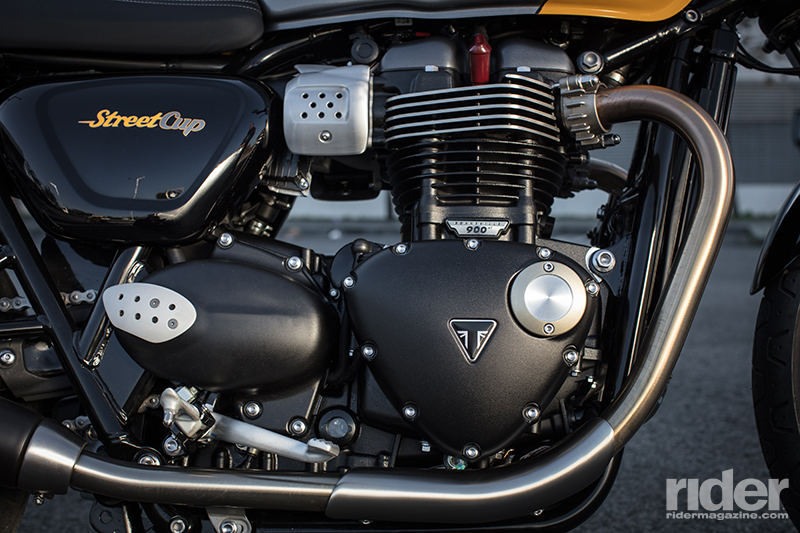
While it shares the Twin’s wheels, gas tank, black engine covers and other cosmetic details, the new Street Cup has its own café racer-style humped seat, matching seat cowl and fly screen, bar-end mirrors with forged mounts, dual-clock instrument cluster, sporty Thruxton R-style footpegs, forged headlight mounts, bullet indicators, hand-applied paint trim and pinstriped wheels.
The differences aren’t merely cosmetic, however. The Street Cup’s chassis has been tweaked to result in a steeper rake for sharper handling, with a seating position that puts the rider just over an inch higher and slightly forward. In keeping with its 1960s authentic look, it doesn’t have clip-ons, but rather a dropped clubman or “Ace” handlebar that manages to be sporty yet comfortable. The front brake is an upgraded version of the 2-piston Nissin caliper used on the Street Twin and Street Scrambler, biting down on a single 310mm floating disc.
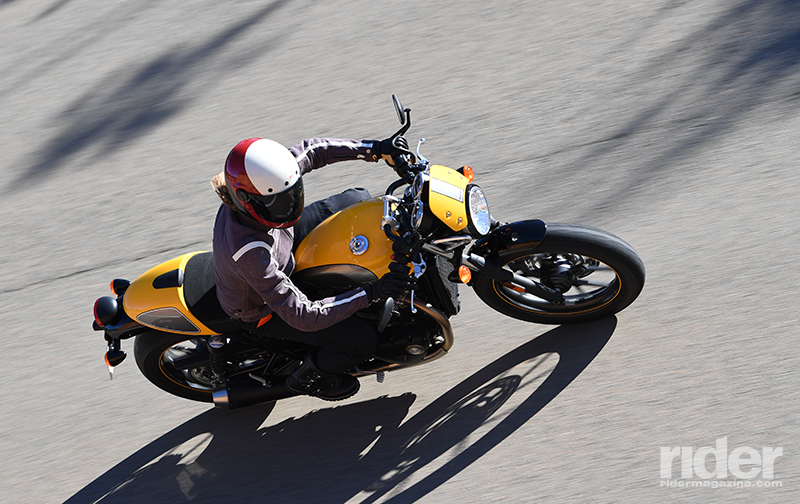
Its 900cc “High Torque” parallel twin appears to make the same power figures as the Twin, which spun the Jett Tuning dyno to the tune of 52.6 horsepower at 6,000 rpm and 56.7 lb-ft of torque at 3,200 at the rear wheel. The Cup benefits from a set of shorter, lighter and wider silencers with a slick satin black finish. It also features the same ride-by-wire system with switchable traction control, standard ABS, non-adjustable 41mm Kayaba fork and preload-adjustable rear shocks, all with 4.7 inches of travel. Rather than the practical, but not terribly sporty gaiters, however, the Cup has plastic fork protectors that show off the shiny chrome stanchions.
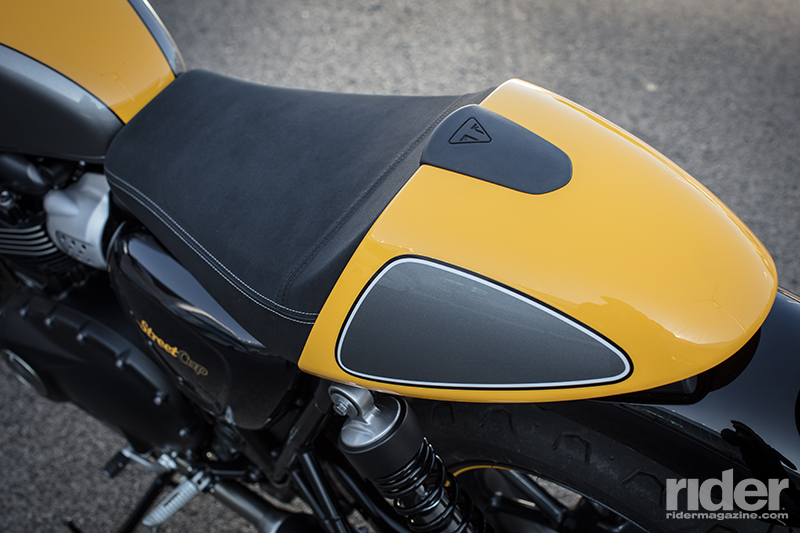
I got the chance to ride the Street Cup in the beautiful countryside near Seville, Spain, for a brief (3-hour) tour through quaint cobblestoned villages and over miles of perfect, sometimes technical curves. Despite the low clubman handlebar, the Cup proved to be accommodating and comfortable. This could be partly attributable to the placement of the footpegs, which are positioned directly below the rider, rather than the more aggressively sporty up-and-back position of the Thruxton.
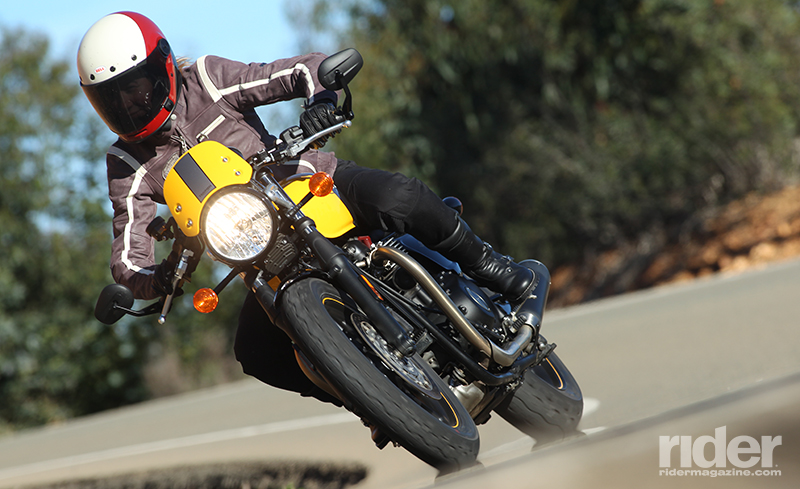
The ride-by-wire was calibrated nicely, with a smooth roll-on and –off that made it easy to modulate on bumpy roads (important when you’re rattling over ancient cobblestones) and when taking off from a stop. The power comes on smoothly as well, with the majority of the 59 lb-ft of torque (claimed) available between 2,250 and 4,750 rpm, and the horsepower climbing steadily to its peak of 55 (claimed) at 5,900 rpm. I found it to be almost too smooth, wanting more of the spunky attitude that the Cup’s Scrambler sibling exhibits.
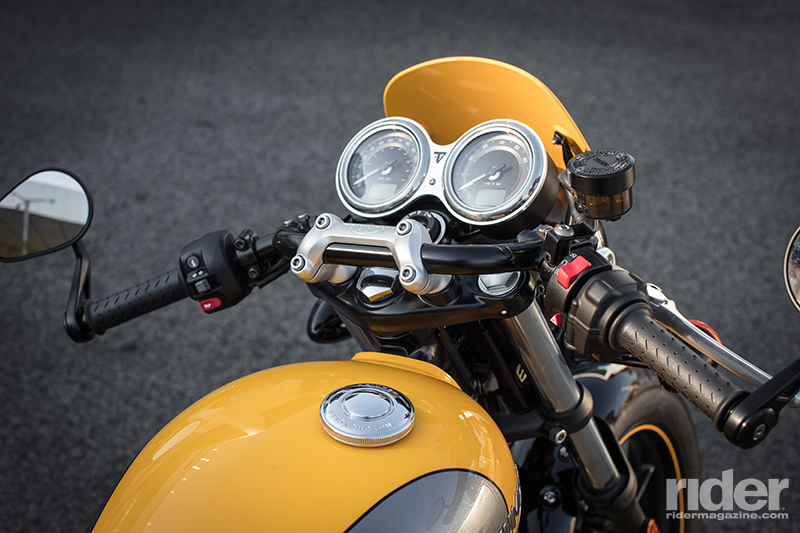
In the twisties, the Street Cup’s handling can be described as “fun,” and with my 135 pounds aboard it steered willingly enough into deep leans, never feeling skittish and certainly an improvement over the previous generation of 865cc Bonnevilles, including the Thruxton. Despite the single disc brake, stopping power was adequate, even on spirited mountain descents. I also appreciated that both the brake and clutch levers are adjustable, a feature I wish was considered non-negotiable by manufacturers.
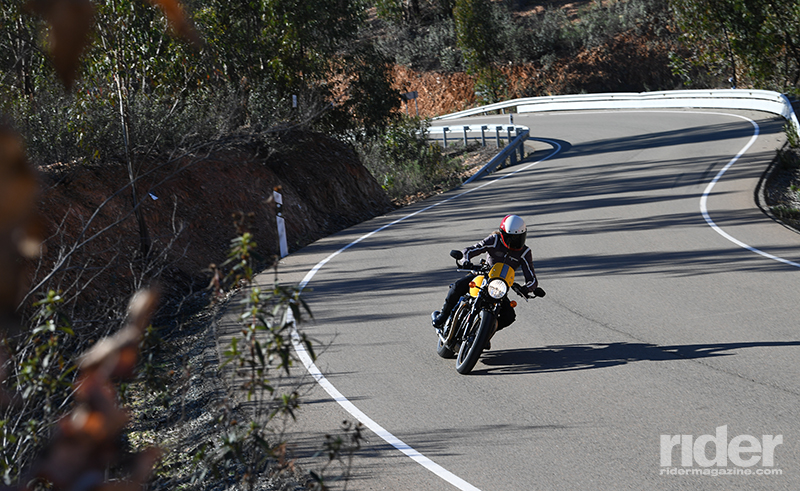
At higher speeds (which we sampled quite often on our ride), the small flyscreen works to deflect some of the windblast, but only by tucking in was I able to reduce the lift on my Bell Bullitt helmet to tolerable levels. Retro helmets may look cool, but they aren’t always practical.
The Street Cup is a handsome, well thought-out machine, with a fit-and-finish above that of the previous Bonnevilles. Gone are the fake carburetors and perfectly period-correct heavy chrome, replaced with modern brushed aluminum components and covers. This is the proper evolution of “retro.”
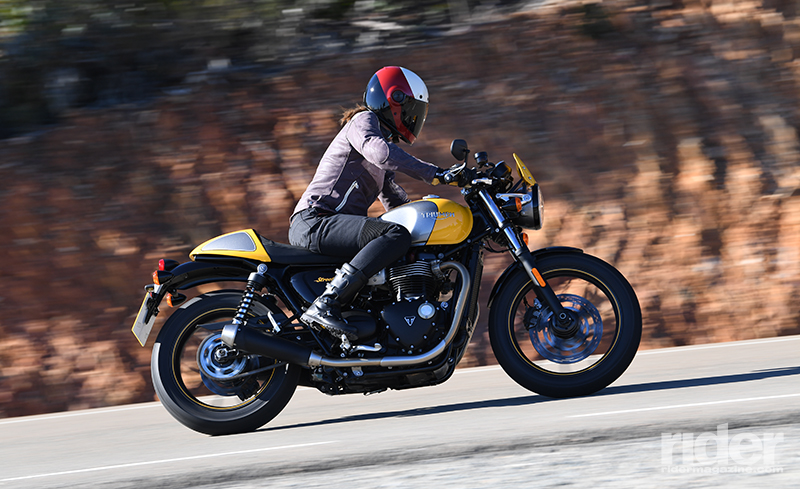
Your Cup can be eye-catching or stealthy, with a choice between Racing Yellow/Silver Ice with yellow wheel stripes or Jet Black/Silver Ice with gold wheel stripes. Both also feature hand-painted coach lining. At $10,500, the Cup will set you back about $1,800 more than the Twin, but if you’re looking for a sportier ride it’s well worth it.
Jenny’s Gear
Helmet: Bell Bullitt
Jacket: iXS Shawn
Pants: Saint Model 1
Boots: Stylmartin Continental
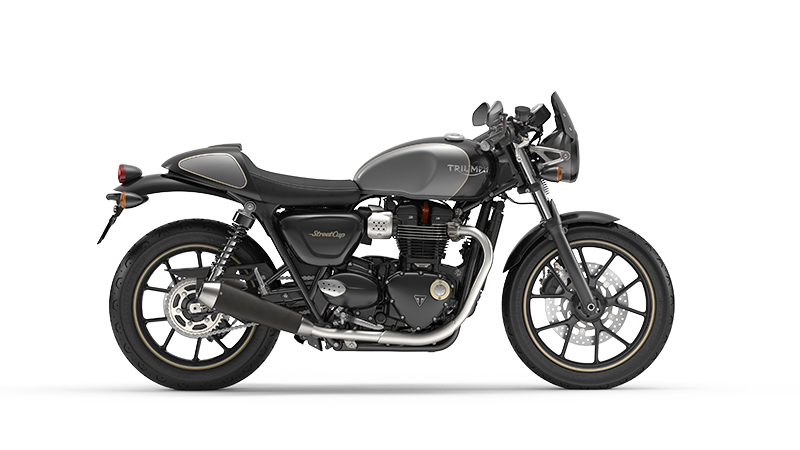
2017 Triumph Street Cup Specs
Base Price: $10,500
Website: triumphmotorcycles.com
Engine Type: Liquid-cooled, 270-degree crank angle parallel twin, SOHC, 4 valves per cyl.
Displacement: 900cc
Bore x Stroke: 84.6 x 80mm
Transmission: 5-speed, wet torque assist, multi-plate clutch
Final Drive: X-ring chain
Wheelbase: 56.5 in.
Rake/Trail: 24.3 degrees/3.9 in.
Seat Height: 30.7 in.
Claimed Dry Weight: 441 lbs.
Fuel Capacity: 3.2 gals.
MPG: NA







